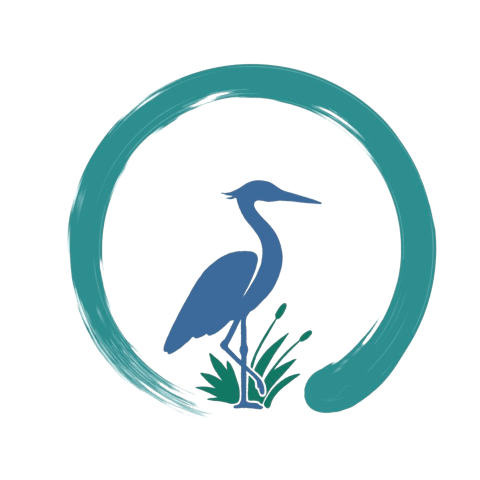
In essence, holism is an inspiring and empowering new story about the world and our place in it.
It seems that as a species we have a hardwired need for stories that provide us certainty around these big questions of life, and cultures throughout history have provided different answers to these existential questions.
And right now we could sure use the hopeful, Hollywood-style happy ending that a holistic worldview can point us to. Because unfortunately, our present cultural story is no longer serving us well; in fact it is working against us – it has gifted us with a panopoly of problems and driven us down a cul-de-sac of calamity.
We are living in turbulent and uncertain times, in a world spinning increasingly out of kilter. Providing a backdrop to a whole host of other crises coinciding at this moment in history are two biggies: the threat of climate breakdown and the obscene disparity in wealth, both within and between societies (for example, according to Oxfam’s 2022 ‘Inequality Kills’ report, 252 men have more wealth than the 1 billion women and girls in Africa, Latin America and the Caribbean combined). But these issues haven’t just come out of the blue; they have been building up over decades.
In identifying the causes of these problems and the reasons why there seems to be a lack of authentic and urgent action needed to tackle them, we might point our fingers at the entrenched greed of ultra-powerful multinational corporations, the politicians in their pockets, and the mass media, owned for the most part by people whose interests are served by maintaining the status quo.
But there’s a deeper, root cause underpinning these problems and the other crises we are facing. What it essentially boils down to is a crisis of perception: of how, as a culture, we view the world and ourselves. And how we see things rests on what we believe about them.
This is vitally important to understand, because what we believe frames how we act. Consider this on a personal level: if I believe I can’t do something, I am very unlikely to try.
So essentially, this is the meaning of the present: it is the consequences of the stories our western culture has been telling that is creating the perfect storm of crises we are being buffeted by.
We naturally assume that what we believe about the world and ourselves – our human ‘nature’ – is the Truth. But there are other ways of perceiving the world and our relationship with it, which are quite different to how we may see it. And a different way of viewing the world – with different consequences – is the holistic vision.
Holism isn’t suddenly going to materialise out of thin air; holism is an emerging cultural worldview. Even though I said it was new, holistic knowledge systems and practices such as shamanism, buddhism, Taoism, meditation and yoga have been knocking around for millenia. But a worldview which the West can accept has to have scientific underpinnings; and holistic properties of the universe were discovered by scientists in the 20th century. In terms of cultural ideas, this makes holism veritably spritely.
Quietly, with little fanfare, holistic solutions to our problems are being devised and implemented at the grassroots level and at the edges of society, often small-scale initiatives at the vanguard of change. And in recent years, holistic ideas have been bubbling up into the collective consciousness.
benefits of adopting a holistic mindset
Holism allows everyone and everything to thrive, rather than a minority at the top of the pyramid, at the expense of others. By adopting a holistic mindset, we are more likely to create the conditions for a flourishing mother earth and healthier, fairer societies, leaving a positive legacy for our children, grandchildren and future generations. Moreover, We can use insights from holism and holistic tools to make positive changes and grow in our own lives.
The relative stability of life in western societies that many of us (at least the older generations) grew up in has given way to instability, caused by the unsustainable nature of the way we are live – which is ultimately caused by the unsustainable nature of our worldviews. Conditions will only get more chaotic if we don’t make systemic changes to how we live. This relies on transforming how we see the world and humanity’s place in it. We only have a small window of opportunity left to make the necessary changes to avert climate catastrophe, the cascading consequences of which will have a profound ripple effect on our human systems, especially because they haven’t been structured with resilience in mind.
It’s not at all clear if a holistic story will replace our current story in time. Our belief systems are very resistant to change and it takes time and effort to do this. But I believe we can choose to adopt a holistic mindset, and use it as a compass to guide us going forward. And with a destination in mind, we are surely more likely to weather the storms buffeting us as we journey towards it.
In the Chinese writing system, 2 characters are used to represent the word ‘Crisis’. The first character means ‘danger’. But the second means ‘opportunity’. In a time of flux when the old ways of thinking and living are crumbling, there is an opportunity to promote alternative solutions to the problems we are facing. I believe that with humanity’s boundless capacity for generating innovative solutions combined with a mindset rooted in holism, we can turn things around and, in time, foster a world in which all of humanity and nature can flourish.
Join me on my Intro to Holism course
Join the dots to gain a deeper understanding of the times we live in…
…and learn about viable solutions
THERE IS AN ALTERNATIVE!
